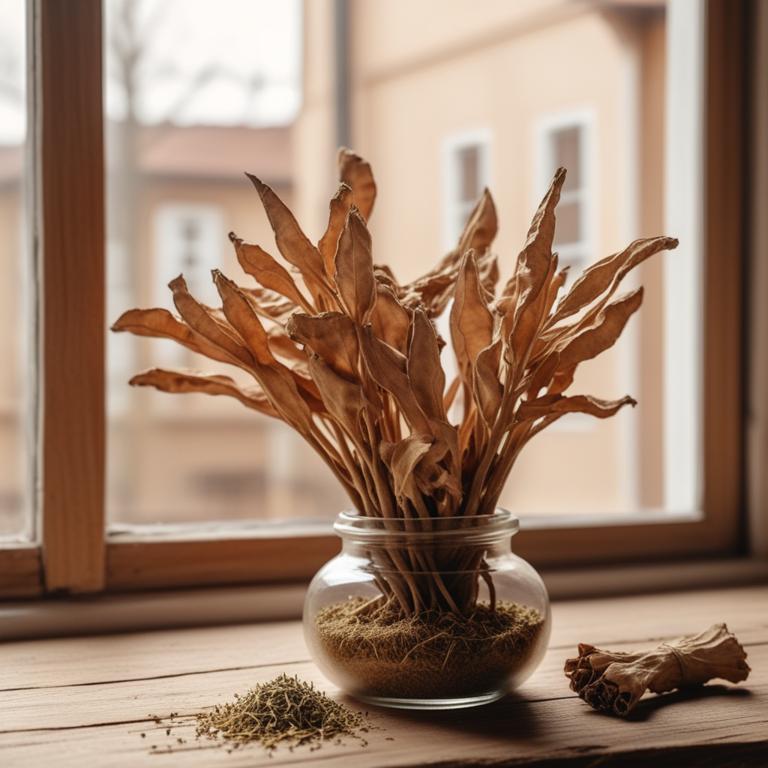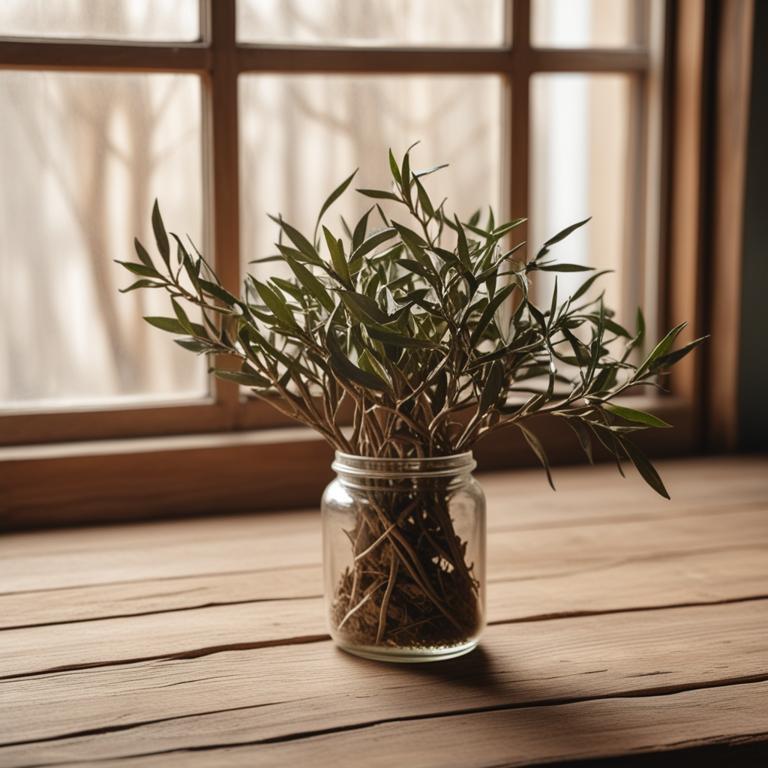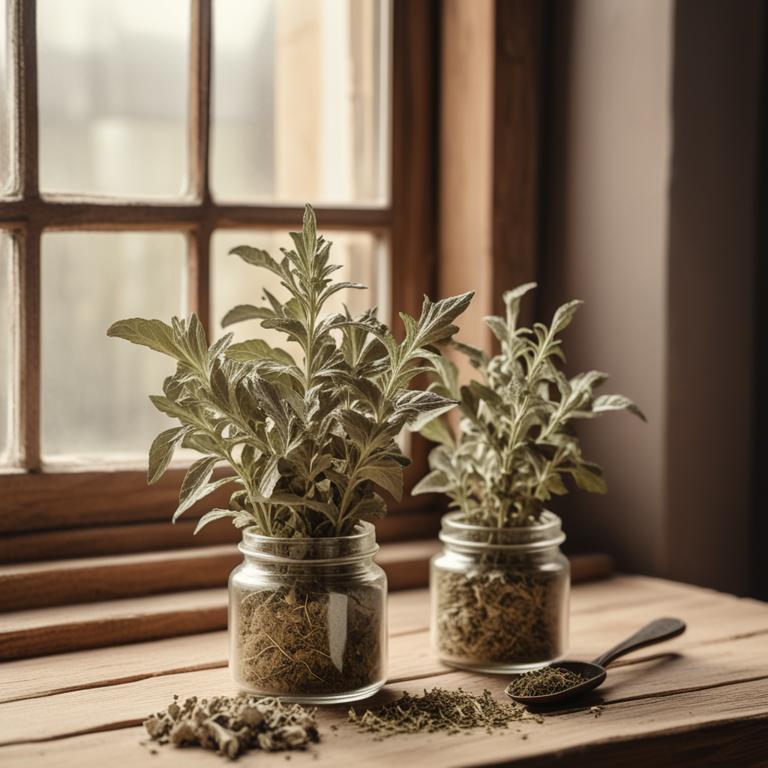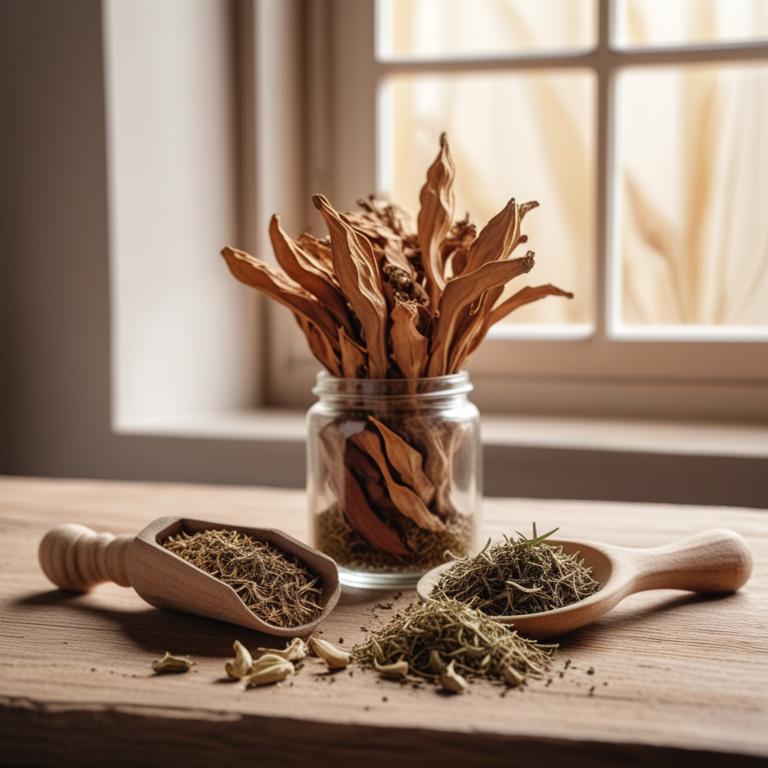Updated: Dec 1, 2024
Hypertension and Herbal Remedies: Causes and Medicinal Herbs for Treatment
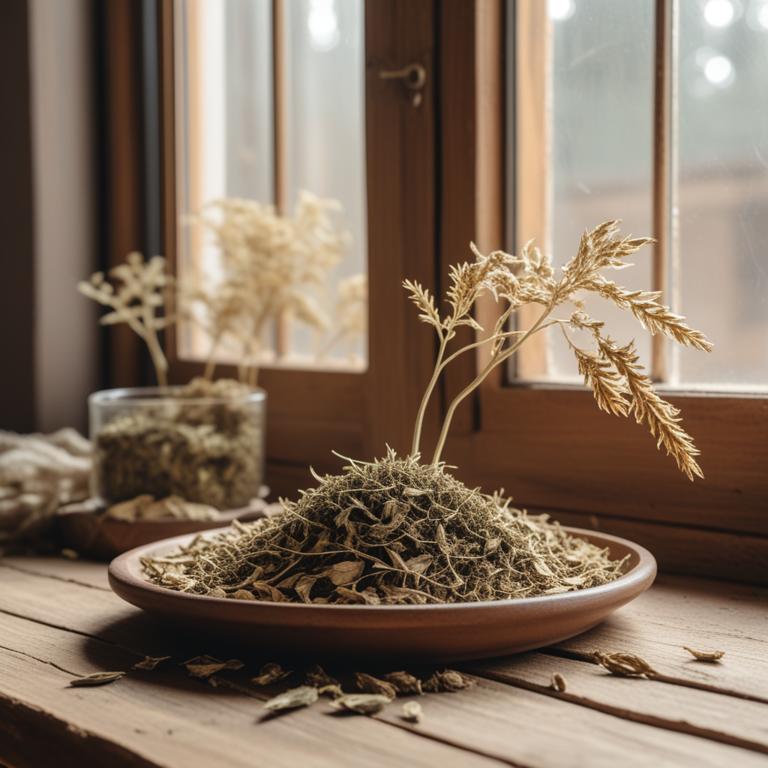
Hypertension, or high blood pressure, is a condition where the blood pressure in your blood vessels becomes too high.
If left untreated, it can cause damage to your heart, brain, kidneys, and other organs. People with hypertension may experience headaches, dizziness, and fatigue, making everyday activities like walking or even sleeping difficult. Hypertension is often caused by a combination of factors, including a poor diet, lack of exercise, smoking, and family history. As we age, our blood vessels naturally become less flexible, making it harder for the blood to flow freely. This can lead to a buildup of pressure in the blood vessels, causing hypertension.
There are several healing herbs that have been traditionally used to help lower blood pressure. One of these herbs is Hawthorn, which is known for its ability to calm and strengthen the heart. Another herb, Garlic, has natural blood-thinning properties that can help to reduce blood pressure. Also, the herb Ashwagandha has been shown to reduce stress and anxiety, which are common triggers for high blood pressure. To use these herbs for hypertension, you can try making a tea by steeping dried herbs in hot water. You can also take them in capsule form or as a tincture.
For example, you can make a calming tea by combining Hawthorn and Ashwagandha, and drink it before bed to help regulate your blood pressure.
Table of Contents
- What factors contribute to the occurrence of hypertension?
- What benefits can be obtained from using herbs to manage hypertension?
- What are the main medicinal herbs used to lower blood pressure in individuals with hypertension?
- What are the most popular herbal preparations used to treat hypertension?
- What herbs should be avoided by people suffering from hypertension?
- FAQ
What factors contribute to the occurrence of hypertension?
The main causes of hypertension are a mix of lifestyle choices and factors that can affect our health.
For one, excessive salt consumption plays a significant role. When we eat too much salt, our body holds onto more water, which increases blood pressure. This is because our blood vessels get narrower, making it harder for blood to flow, and our heart has to work harder to pump blood, leading to higher pressure. Another major contributor is physical inactivity. When we don't move enough, our blood vessels become less flexible, and our heart has to work harder to pump blood, again leading to higher blood pressure. Regular exercise, on the other hand, helps our blood vessels stay flexible and our heart stay strong.
Being obese is also a significant risk factor. When we're overweight or obese, we tend to have higher blood pressure because our blood vessels are under more strain. This is partly due to the excess fat around our organs, which can make our blood vessels narrower. Finally, smoking is another major contributor to hypertension. When we smoke, our blood vessels become narrower and less flexible, making it harder for blood to flow. This forces our heart to work harder, leading to higher blood pressure.
Smoking also damages our blood vessels over time, making them more prone to high blood pressure.
What benefits can be obtained from using herbs to manage hypertension?
Using herbs for hypertension can bring many benefits.
One of the main advantages is that they are natural and don't have harsh side effects like some prescription medicines do. Herbs can also help lower blood pressure without making you feel weak or tired, which is a common issue with some medications.
They can also be more effective at reducing the risk of heart disease and stroke, which are often linked to high blood pressure. Additionally, herbs are often less expensive than prescription medications and are widely available in health food stores and online. They can also be used in combination with other treatments, making them a great option for people who want to take a more holistic approach to managing their blood pressure.
By incorporating herbs into your daily routine, you can potentially reduce your reliance on medication and feel more in control of your health.
What are the main medicinal herbs used to lower blood pressure in individuals with hypertension?
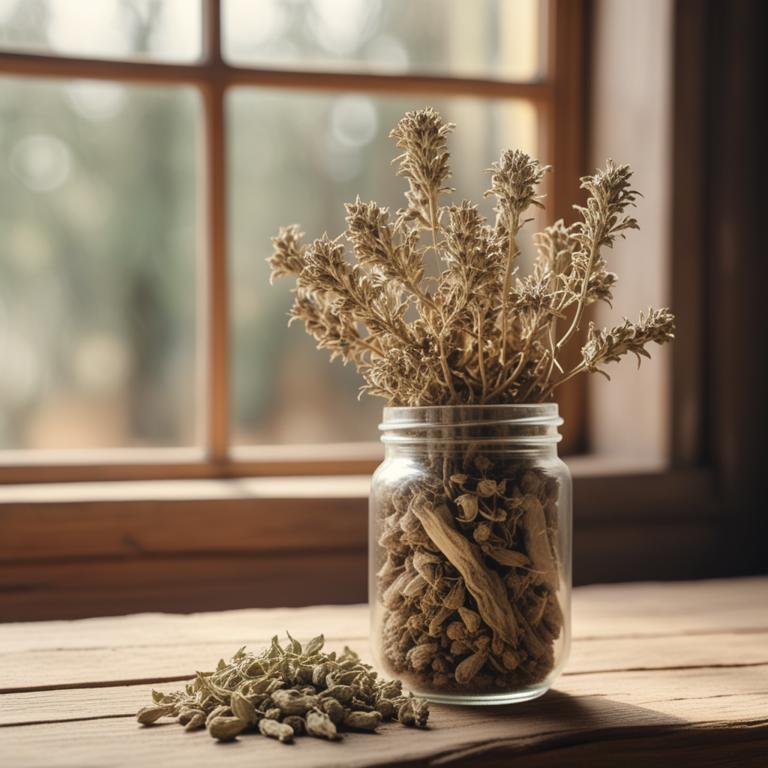
Herbs can be a great addition to managing hypertension, or high blood pressure.
Some herbs that have been shown to have a positive effect on blood pressure are Withania somnifera, also known as ashwagandha. This herb has been found to help reduce stress and anxiety, which can contribute to high blood pressure. It does this by regulating the body's response to stress and promoting relaxation. Ginkgo biloba is another herb that has been studied for its effects on blood pressure. It's thought to help improve blood flow and reduce inflammation in the blood vessels, making it easier for blood to flow and lower blood pressure.
It also has antioxidant properties, which help protect the blood vessels from damage. Ocimum basilicum, or sweet basil, has been found to have a similar effect to Ginkgo biloba in reducing inflammation in the blood vessels and improving blood flow. This can help lower blood pressure and reduce the risk of heart disease. Lavandula angustifolia, or lavender, has a calming effect on the body and can help reduce stress and anxiety. High levels of stress and anxiety can contribute to high blood pressure, so lavender can be a useful herb in managing blood pressure. Olea europaea, or olive leaf, has been found to have a number of benefits for heart health, including lowering blood pressure.
It's thought to work by reducing inflammation in the blood vessels and improving blood flow, similar to some of the other herbs mentioned here.
What are the most popular herbal preparations used to treat hypertension?
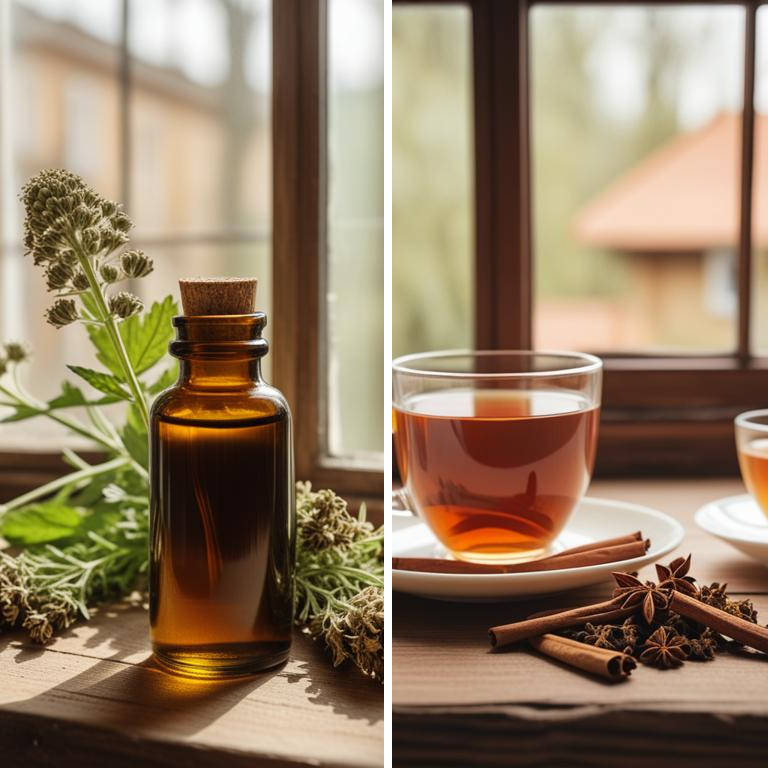
Herbal preparations can be a great way to help manage hypertension.
A decoction is a strong tea made by boiling herbs in water for a longer period, which helps to release their active ingredients. This can be beneficial for hypertension as it allows for a higher dose of the herb to be taken in a single serving. For example, dandelion root decoction can help to lower blood pressure by reducing fluid retention in the body. A tincture, on the other hand, is a concentrated liquid extract of the herb. It's usually taken in small doses and can be added to water or taken sublingually (under the tongue). Tinctures are good for hypertension because they're easy to absorb and can provide a quick boost of the herb's active ingredients. For instance, hawthorn tincture can help to improve blood vessel function and lower blood pressure. Herbal capsules are another convenient way to take herbs for hypertension. They're pre-measured doses of the herb in a capsule form, which makes it easy to take the right amount.
Capsules are a good option for people who have trouble swallowing tablets or prefer not to taste the herbs. For example, garlic capsules can help to lower blood pressure by reducing inflammation in the blood vessels. Infusions and teas are also popular herbal preparations for hypertension. An infusion is a lighter version of a decoction, made by steeping herbs in hot water for a shorter period. Teas are often made by infusing herbs in hot water for a few minutes. Both infusions and teas are gentle on the body and can be taken regularly to help manage hypertension. For instance, peppermint tea can help to relax the blood vessels and lower blood pressure. Lastly, herbal teas can also be made by steeping herbs in cold water, which is known as a cold infusion. This method is gentler on the herbs and can be a good option for people who prefer a milder flavor.
For example, chamomile tea can help to calm the nervous system and reduce blood pressure.
Additional Resources:
What herbs should be avoided by people suffering from hypertension?
If you have high blood pressure, it's essential to be cautious with certain herbs that can affect your heart health.
Ephedra sinica, for example, contains ephedrine, which can raise blood pressure even more and make it harder to control. Panax ginseng might also be a problem, as it can increase the heart rate and blood pressure.
Rauvolfia serpentina, on the other hand, is often used to lower blood pressure, but taking it without consulting a doctor can be too much of a good thing. Cassia auriculata can cause blood vessels to constrict, which can increase blood pressure and make it harder to manage. Similarly, Pausinystalia johimbe contains yohimbine, which can cause blood vessels to constrict and raise blood pressure.
Taking these herbs without medical supervision can lead to interactions with medications or worsen your condition, so it's crucial to talk to your doctor before using them.
FAQ
Are there any specific herbs that can prevent hypertension?
Ginger and turmeric have properties that may help lower blood pressure.
They contain compounds that reduce inflammation and improve blood vessel function. Drinking ginger tea or adding turmeric to meals could be beneficial for people with hypertension.
These herbs have been used in traditional medicine for their potential health benefits.
Is it safe to use herbal remedies for hypertension during pregnancy?
Using herbal remedies for hypertension during pregnancy can be a concern.
Some herbs can affect the baby's growth or cause bleeding problems. For example, ginkgo biloba and yarrow can increase bleeding risk. Others like licorice root and juniper berries may raise blood pressure further.
It's essential to be cautious when considering herbal remedies during pregnancy.
Are there any herbs that can reduce the frequency of hypertension?
Certain herbs, such as hawthorn and garlic, have been studied for their potential to reduce blood pressure. Hawthorn, in particular, is believed to help relax blood vessels and improve circulation, while garlic may help lower sodium levels in the body, contributing to reduced blood pressure.
Related Articles
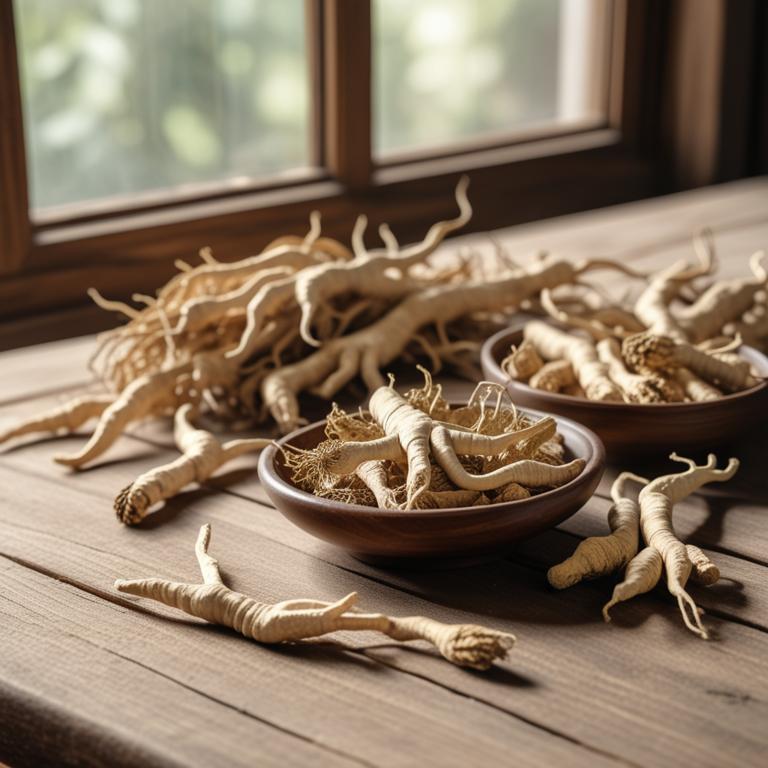
Overcoming Low Blood Pressure: Causes, Herbal Remedies, and Effective Preparations
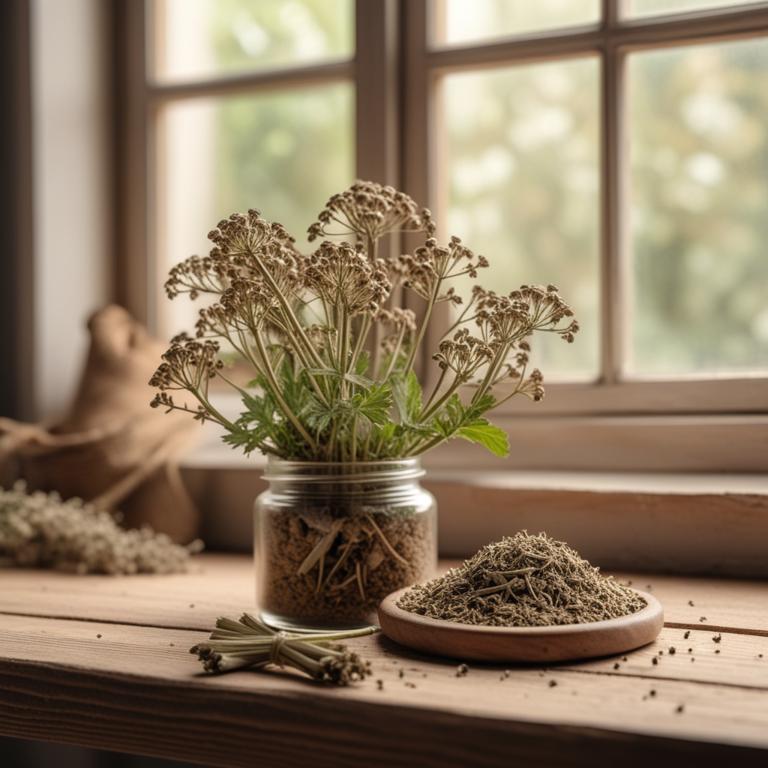
Palpitation: Understanding Its Causes and Natural Medicinal Herbs
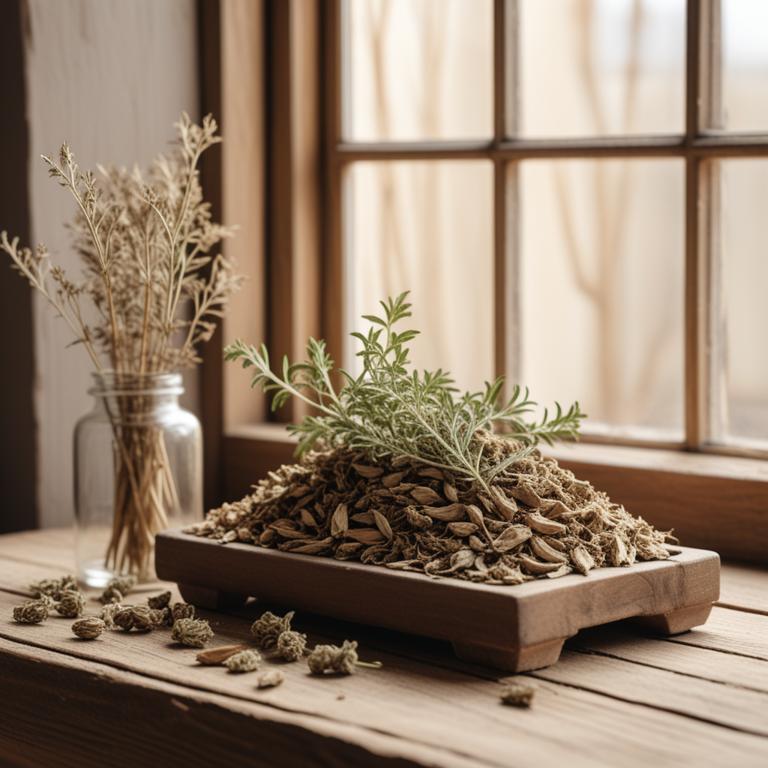
The Causes and Herbal Treatments of High Blood Pressure
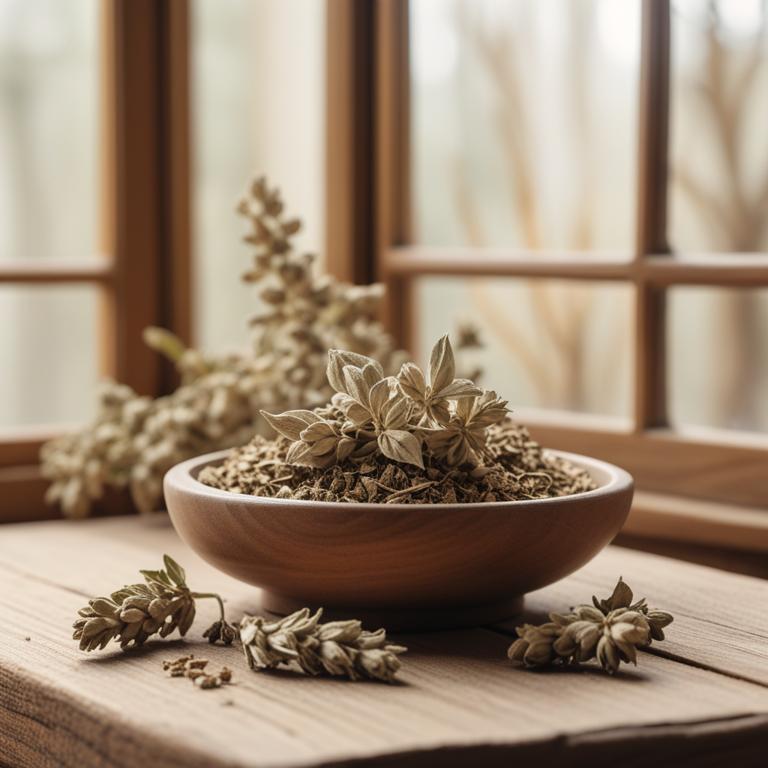
Hypertension and Herbal Remedies: Causes and Medicinal Herbs for Treatment
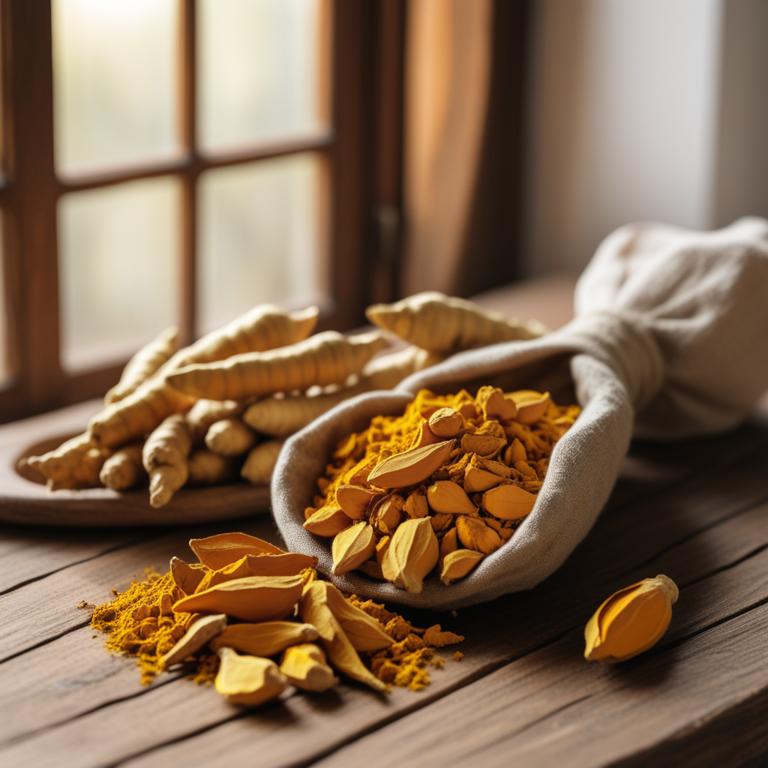
Arteriosclerosis: Unlocking Causes and Herbal Treatment Options
